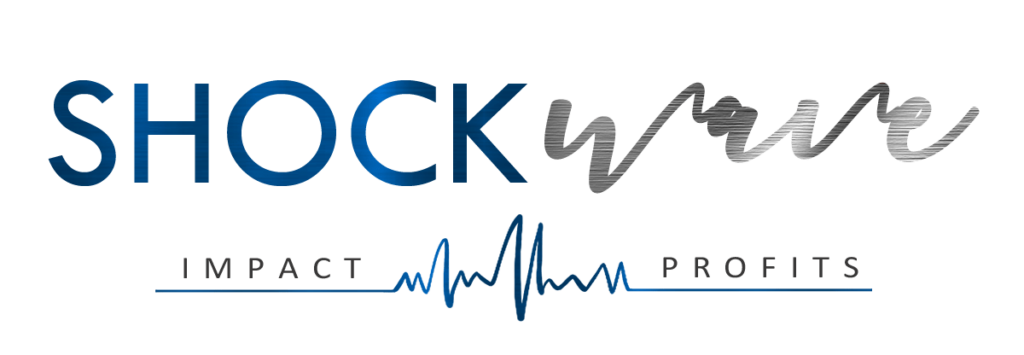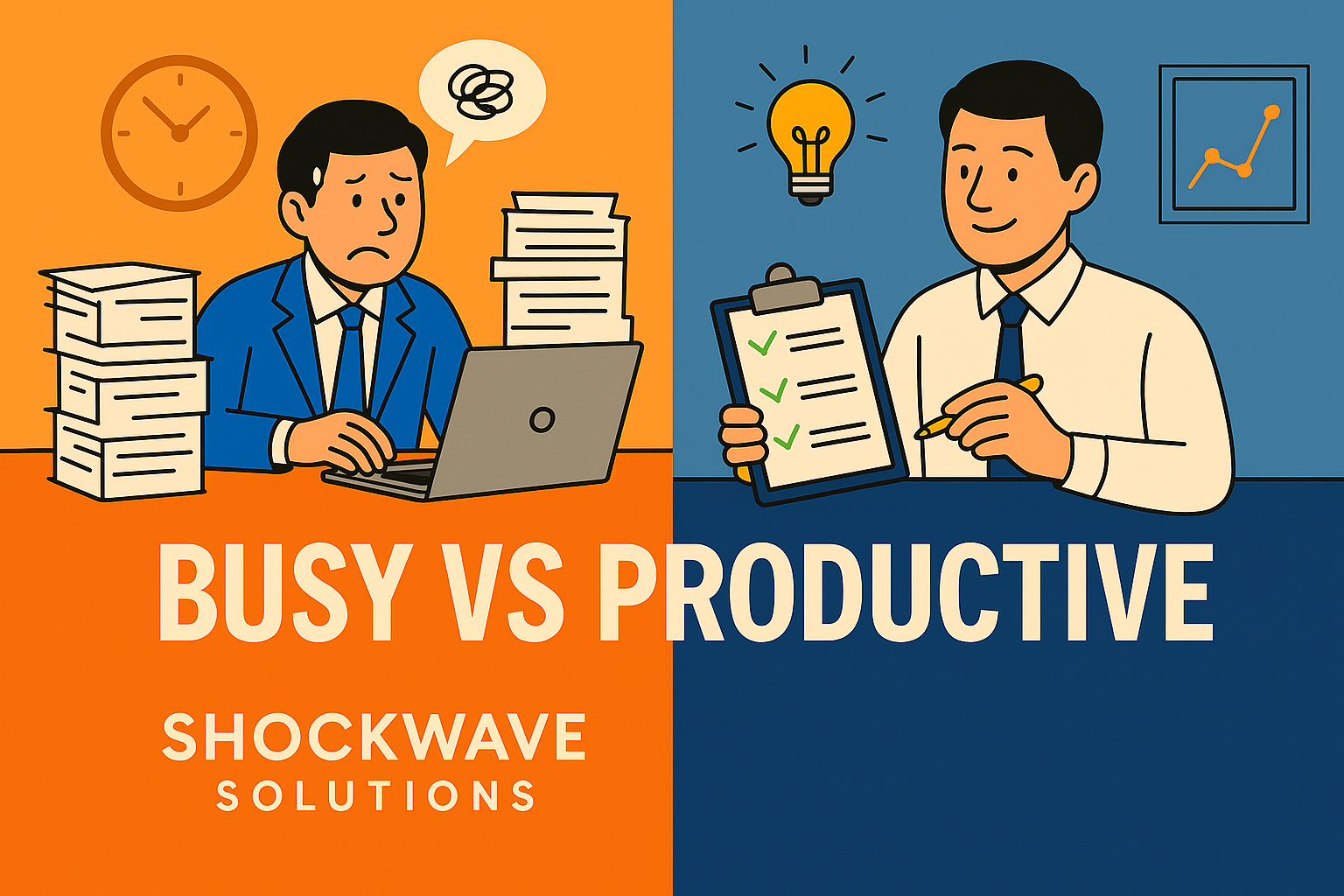Busy ≠ Productive: Why Your Ops Are Killing Your Scale
The hidden operational chaos behind your stalled growth (and the leadership shift that changes everything)
There’s a dangerous lie most founders believe:
“If my team is always busy, we must be making progress.”
Wrong.
Busy doesn’t mean productive. Movement doesn’t mean momentum. And if you’re scaling a business past $1M, $3M, or even $10M—that confusion is killing your growth.
You don’t have a work ethic problem. You have an operational illusion.
Let’s rip it open.
The Cult of Busyness
Look around your office or Slack channels.
- Everyone’s moving.
- Everyone’s “grinding.”
- Tasks are flying. Meetings are stacking. Asana boards are lit up.
But here’s the problem:
You’re mistaking noise for output.
The truth?
Most 7-figure companies are bloated with busywork and bottlenecks disguised as hustle.
They’re moving like hell but not moving forward.
Because busy is what happens when your systems suck.
The Hidden Cost of Confused Ops
Busyness hides a thousand sins:
- Lack of process
- Undefined roles
- Poor communication
- Founder dependency
- Zero accountability
You know the signs:
- You’re in 6 hours of meetings and still have to fix shipping issues at 9PM
- Your team completes tasks, but outcomes are still off
- Nothing moves unless you greenlight it
- People are “working hard” but deadlines are missed and KPIs flatline
That’s not scale. That’s founder-led chaos masquerading as work.
And it’s why your growth is stuck.
If You Want Speed, Start With Structure
Founders love speed. We love fast execution, short sprints, launch-mode energy.
But here’s the paradox:
Speed without structure is sabotage.
If your ops team can’t handle volume, velocity just breaks things faster.
That means:
- Your fast campaign tanks fulfillment
- Your sales spike crashes customer support
- Your team scrambles and burns out
The mistake? You built systems for your current level, not the level you’re chasing.
Productivity = Progress Toward Strategic Outcomes
Here’s how you know your team is productive:
- KPIs move the right way
- Projects complete without constant check-ins
- People solve problems without you
- There’s clarity on who owns what
Here’s how you know they’re just busy:
- Tasks are completed with no real change
- Everyone’s in motion but no one has authority
- You’re still the bottleneck
- Your days are full but your business feels stuck
Productivity = meaningful, leveraged output.
Everything else is a distraction.
Break the Cycle: Leadership Shift Required
If you want your ops to actually scale with your revenue, you need to shift from:
- Task-based delegation to outcome-based ownership
- Centralized decision-making to empowered teams
- Unclear priorities to ruthless focus
Here’s what that looks like in practice:
- Clarify What Matters Most Stop assigning tasks. Start assigning strategic outcomes.
Instead of:
“Upload this product page by Tuesday.”
Say:
“We need this product live, approved, and converting by Tuesday. Do what it takes.”
- Kill Useless Work Audit every recurring task. Kill anything that doesn’t move the business.
If you can’t tie it to revenue, delivery, retention, or infrastructure, cut it.
- Set Accountability Anchors Your team needs scoreboard clarity.
- What’s their number?
- What outcome are they responsible for?
- How do they know they’re winning?
Without that, everything feels urgent. And chaos becomes the culture.
- Train for Autonomy Most founders just delegate tasks. Leaders build teams who can solve problems without them.
Train:
- Decision trees
- Critical thinking
- Risk assessment
- 80/20 prioritization
It’s slow upfront. But it creates speed and freedom later.
- Build Operational Redundancy If one person being sick breaks a process? That’s a fail.
Your ops should have:
- Documented SOPs
- Cross-training plans
- Ownership beyond one name
Redundancy is resilience.
The Cost of Not Fixing This
If you don’t fix this, here’s what’s coming:
- You burn out
- Your A-players leave
- Your customers feel the cracks
- You hit a growth ceiling you can’t push through
All because your backend can’t support the front-end growth you’re chasing.
Most 7-figure businesses aren’t failing because of poor marketing. They’re failing because of bad operations.
And the ones that survive? They stop worshipping busyness. And they build for productivity.
Questions Every Founder Needs to Answer
- Who owns what outcome in your business?
- What tasks are you doing that could be automated or delegated?
- Where are you still the bottleneck?
- What recurring fire keeps coming back?
- Where are your people confused, waiting, or stuck?
The answers tell you everything about your ops maturity.
Final Word: Stop Confusing Chaos With Growth
Being “in demand” is not the same as being effective. A packed calendar is not proof of importance.
You’re not scaling if everything falls apart when you step back. You’re just surviving harder.
The next level of scale requires less chaos, not more hustle. Less noise, more clarity. Less busyness, more ownership.
Build a team that moves the business without moving through you.
Because until that happens, you’re not building a company. You’re just maintaining a cage.
Listen to the full Special Ops Podcast episode to find out how to diagnose the operational chaos inside your business, build true productivity, and start leading like the CEO your business needs next.

